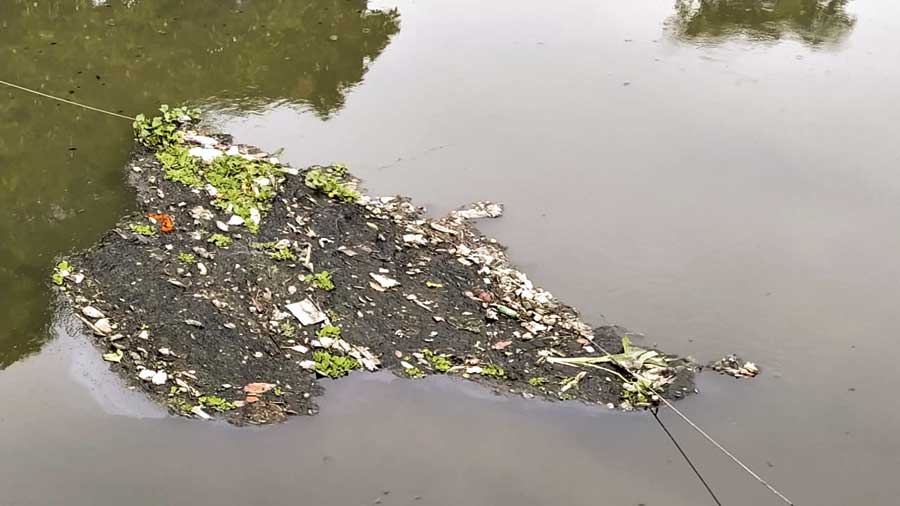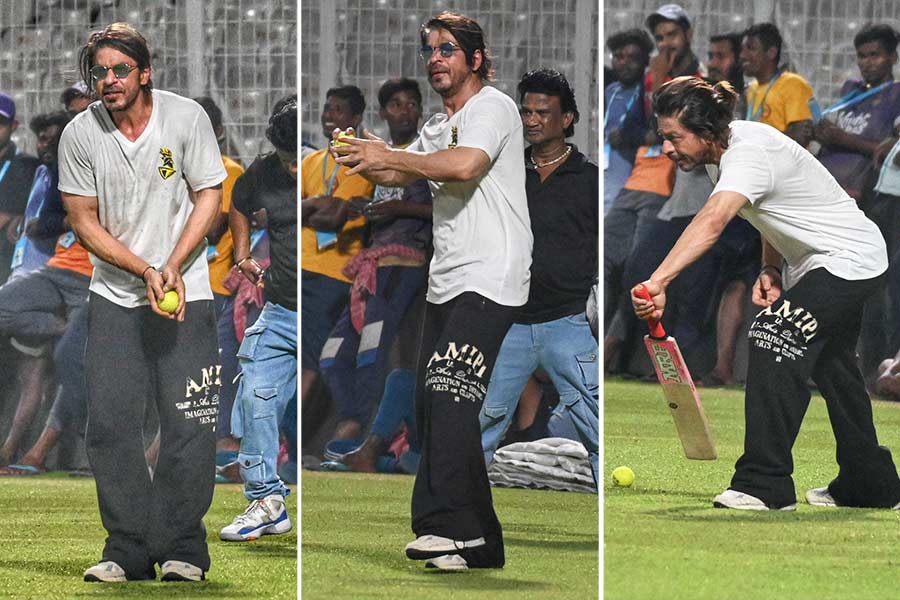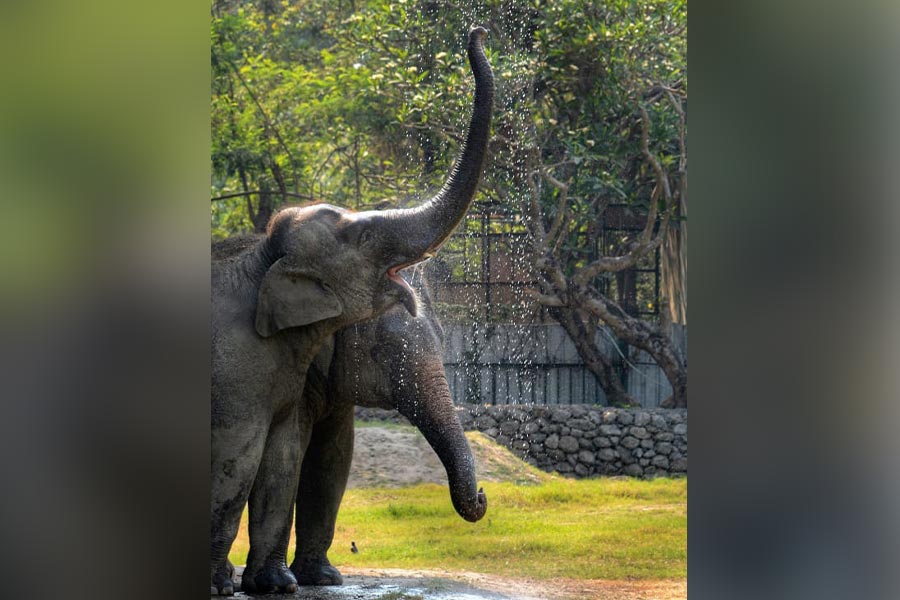Biswajit Naskar, 39, a fisherman at Bamanghata in the East Kolkata Wetlands, has been making a good profit from fishing in his 10-bigha bheri. But lately, he is worried that the water levels from the feeder canal to his bheri are receding.
“That is because the main canal is not being cleaned. Plastic items choke the feeder canals which are narrow, leading to less water being discharged into our bheris. If things continue this way, we will not be able to breed fish,” Naskar told The Telegraph.
He was at the Kheyada High School ground, near Sonarpur, on Friday where Goethe Institut, along with the NGO Disappearing Dialogues Collective, held the penultimate show of the three-day event called Towards a Better Tomorrow, with a travelling pop-up installation narrating the story of the East Kolkata Wetlands, a Ramsar site.
Towards a Better Tomorrow is part of the project Moving Calcutta Calcutta Moving, supported by the European Union National Institutes for Culture.
Naskar breeds katla, rohu, mrigel and punti in his bheri.
“We make a decent living by selling fish at the wholesale markets in Bamanghata and Choubhaga. We turned to fishing from cultivating paddy, which involved a lot of investment with low returns. Now fishing is quite profitable,” said Naskar. However, if the main canal is not cleaned regularly, water levels will deplete.
“Earlier, the government’s 100 days’ job scheme was the perfect tool to get labourers to clean the canal. With the job scheme stalled, the cleaning procedure has also stopped. This does not augur well for us,” said Naskar. His neighbour, Sambhu Mondal, too, breeds fish.
“The government must clean the canal or else fish breeding will be affected here,” he said. For 10 months, Naskar and Mandal toil in their bheris. Water is drained out and the land is ploughed and prepped for two months.
“After draining out the water, we let the land dry. The more we dry it, the better it is for fish breeding. We also plough it and then we mix organic fertilisers like mustard khol. After that we let the canal water in. We then use lime to kill all impurities in the water. Fingerlings of all varieties are released. First, we release a few fingerlings to see if they survive. If the water impurities are high, they die. But if they survive, we know that the water is clean,” said Naskar.
Naskar is a first-generation fisherman. His grandfather and father used to cultivate paddy.






